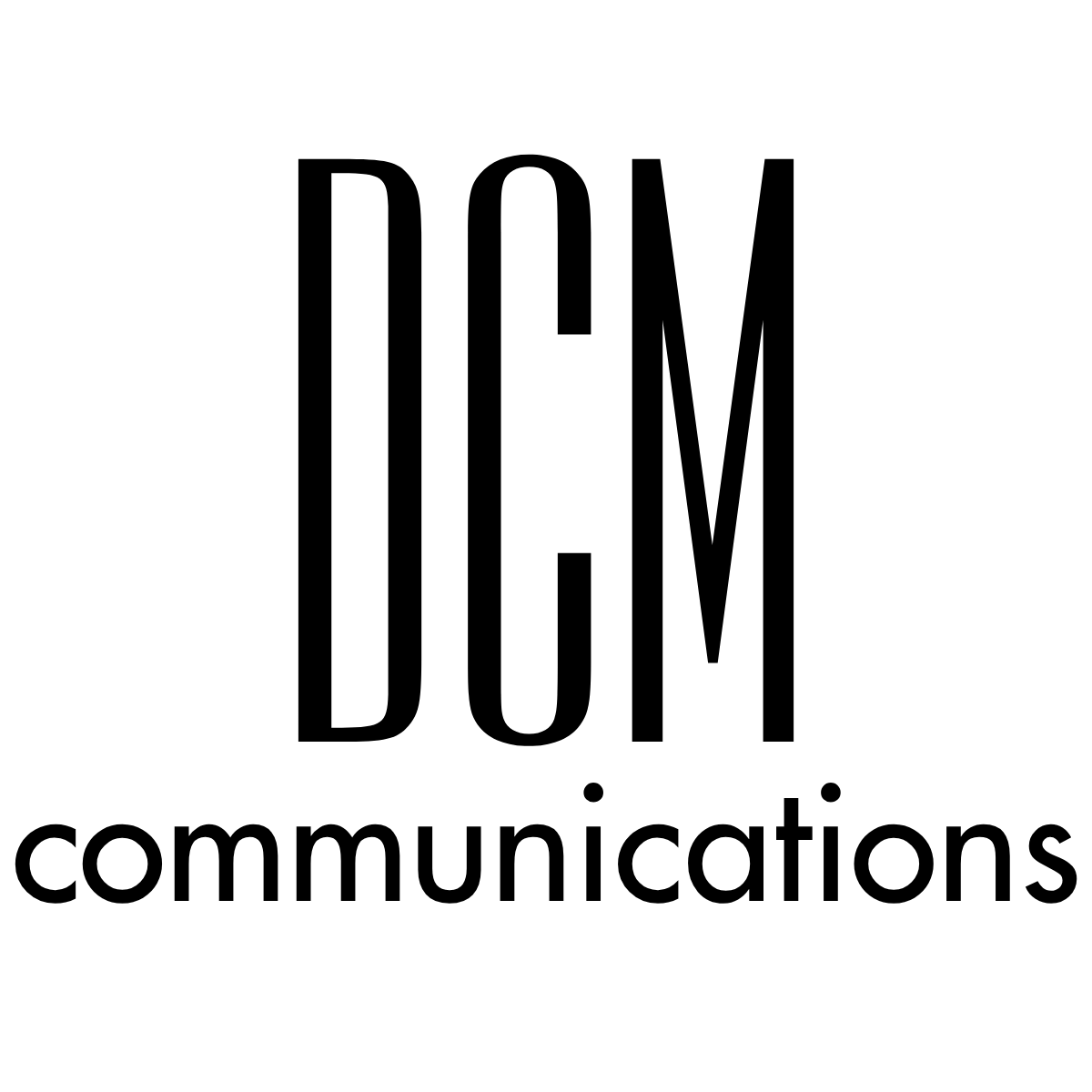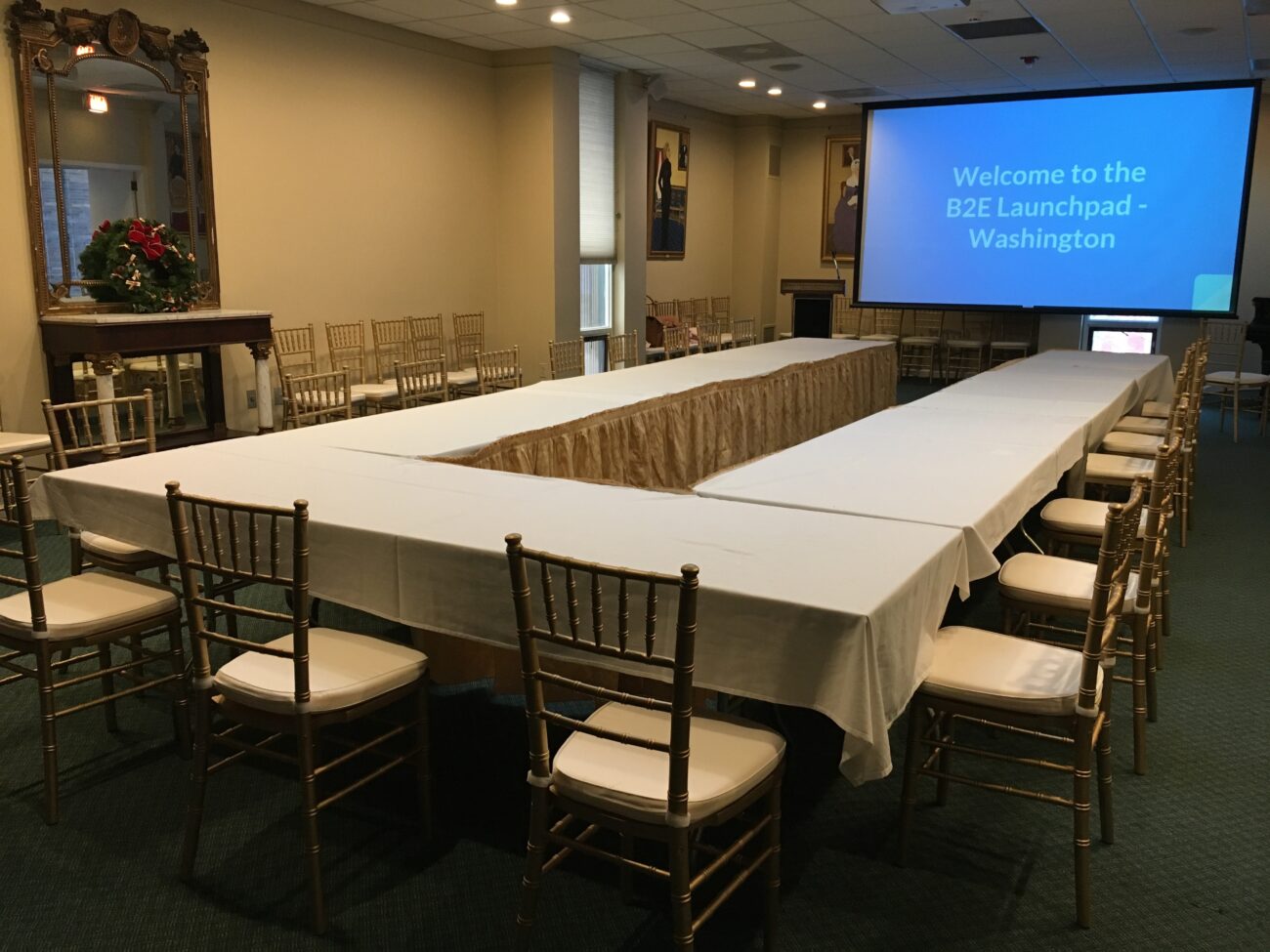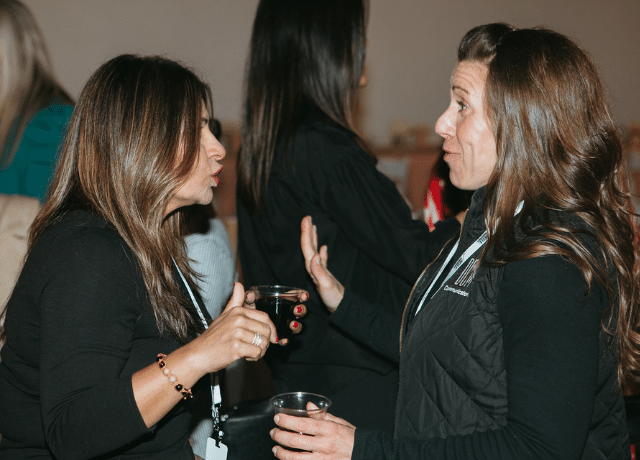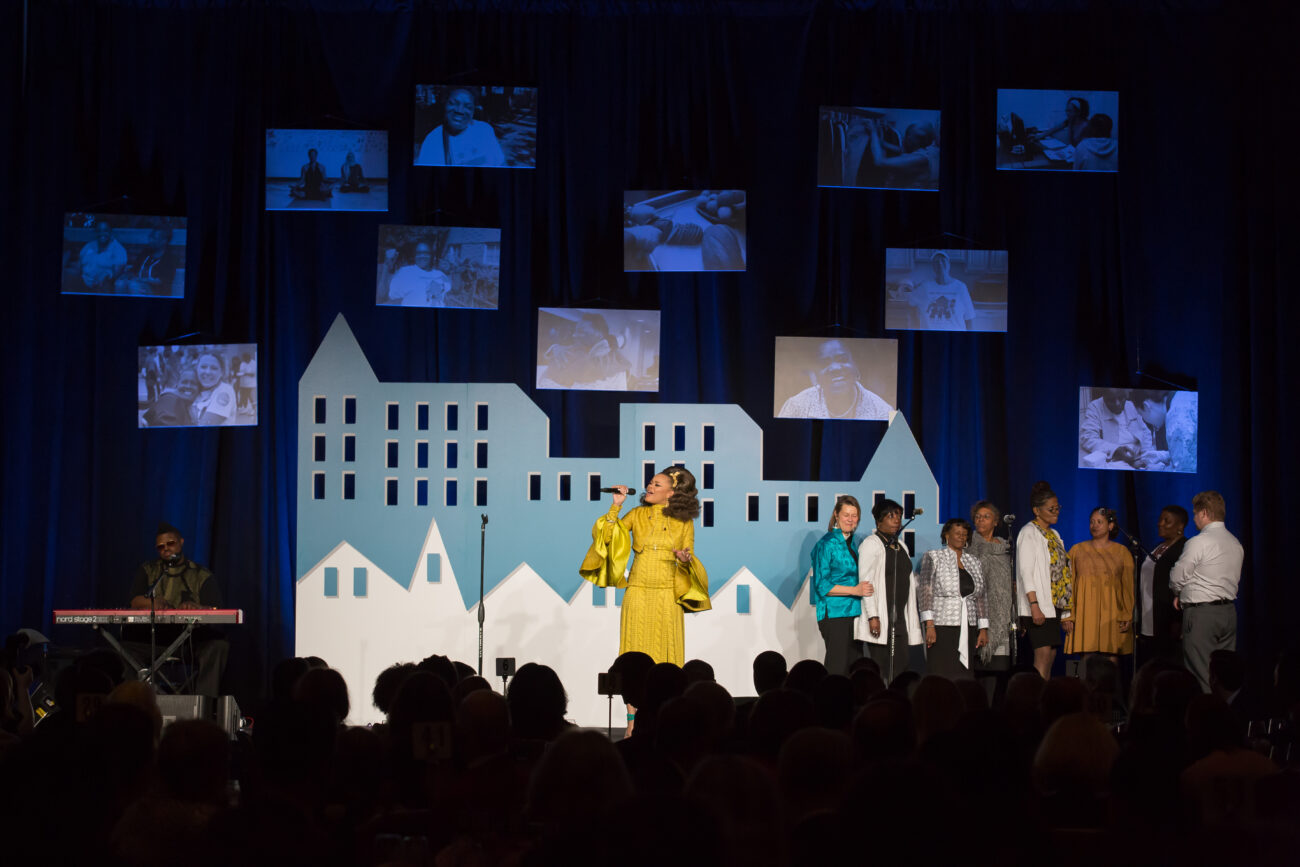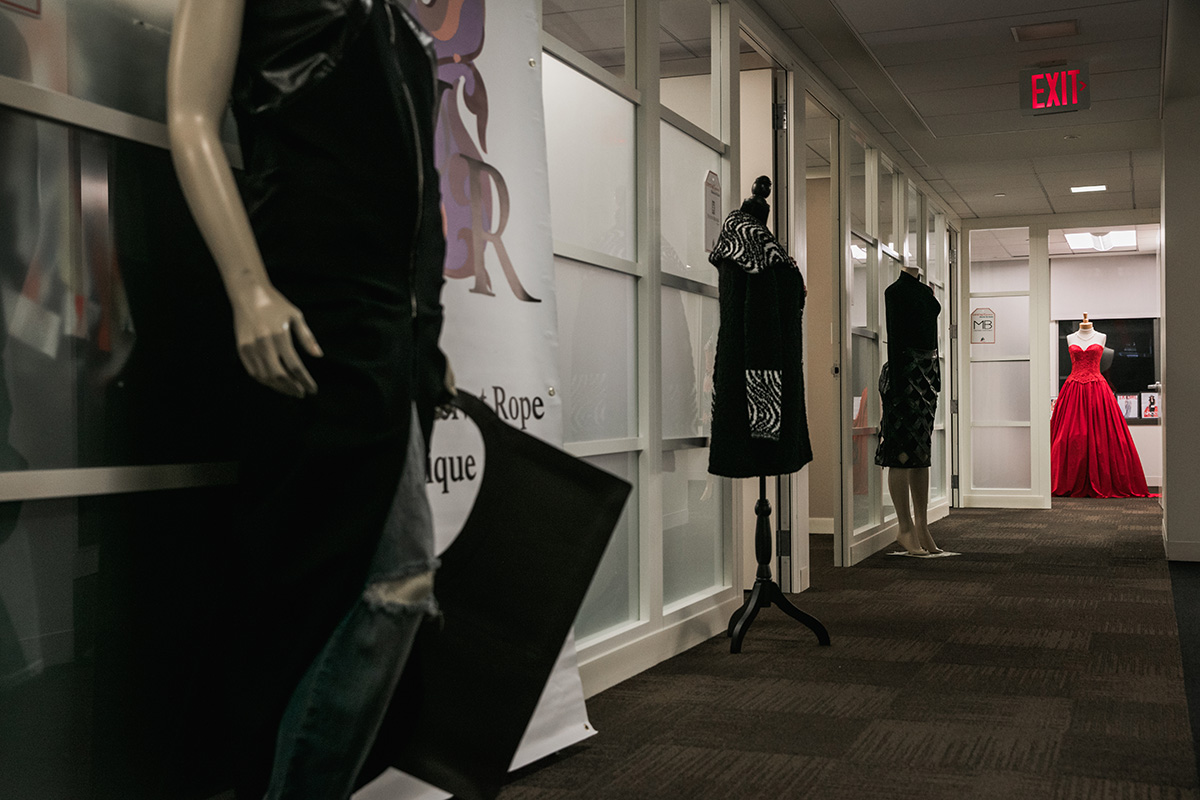The Top 3 Benefits of the Small Workshop

First, a little background: The B2E Launchpad is a series of intimate, interactive workshops focused on educating new or aspiring event professionals on the mastering the art of planning from booking to execution. The material covers everything from how to find your ideal client and secure the contract to effectively creating a perfect event…all without the many mistakes most planners make their first few years in the industry (or in business by themselves).
Here are my top 3 reasons to consider a workshop over a conference:
1. Relationship Building
When you go to a large conference, the focus is on soaking in as much information as you can and meeting as many people as you can in a finite amount of time. However, you don’t really get the chance to solidify those relationships. As our guest speaker Michael Radolinski pointed out in his presentation “Tips for Building Strong (and Profitable) Vendor-Planner Relationships”, sponsored by ILEA DC, those first meetings are just that: meetings. You have to follow-up afterwards with multiple touch points of interaction to truly start building a relationship.

Photo Courtesy of Washingtonian
However, smaller events let you focus your time on building those relationships while you’re there instead of just starting them with a handshake then building later. We begin each of the B2E Launchpad with a welcome cocktail party at separate venue from the workshop, which took place at The Whittemore House. For the Washington edition, we headed to Squash On Fire, a new squash facility in West End that separates itself from its competition by NOT requiring a membership, as many other squash clubs do. Yes, it’s an unlikely place for a cocktail reception, but it also has a bar, catering kitchen and lounge area. (i.e. thinking outside the box)
This pre-event meeting gives everyone a chance to introduce themselves and start conversations with the speakers and fellow attendees in a relaxed setting so those touch points of to continue building the relationship come naturally at the first day of the workshop.
2. Access to Speakers
Not everyone is as outgoing as I am and willing to speak up in front of large groups. Yes, I know this. However, just because you don’t want to be in the spotlight in front of everyone when the speaker calls for questions, doesn’t mean you shouldn’t get your questions answered. Smaller events allow for the easy access to the keynote and guest speakers throughout the event. This way you can approach them individually after the presentation to get the information you really need without worrying about stage fright.
When my partner Gladys Mezrahi and I founded B2E Event Workshops, the parent brand of the B2E Launchpad series, we wanted EVERYONE attending our events to get the information they needed. Quality, easy-to-understand education on event planning, marketing and business development shouldn’t be reserved for those with unlimited marketing budgets and extroverted people. Whether asked during our presentations in a conversational format or during breaks, no one leave sour events with questions.
Our guest speakers feel the same way. Trish Simitakos and Sesyle Moorehad from the National Association of Catering and Events DC Chapter arrived early and stuck around to answer questions after their presentation on “The Dos and Don’ts of BEOs”. André Wells of Events by André Wells also hung around long after his presentation about “Designing Gorgeous Events” to talk to attendees about his design inspiration and learn about their event businesses.
3. Affordability

Workshops however, tend to focus on the content provided and not the pomp and circumstance. Don’t get me wrong, I LOVE some pomp and circumstance. Seriously. But when the focus of the planners is on developing content over getting sponsors, creating activations and/or designing a decor-focused dinner, the overhead for hosting the workshop is lower. Reduced overhead means ticket prices can be reduced as well, while still allowing for a profit for the hosts. (This is a business model after all.)
The key to differentiating the “affordable but valuable” programs from the “good marketing but lackluster content” can be done in two ways:
- Testimonials from past attendees. Obviously everyone thinks the event they host is going to be awesome, but what have actual attendees said about the content OR the speakers? That should be all over the event page, social media and email promotions.
- Ask! Yes I’m being serious here. Just ask questions of the organizers. Most would be happy to answer a phone call or email if will enable a buying decision.
And that’s it! Here are a few more pictures from the fun we had a the B2E Launchpad – Washington. Want us to come to your city next? Comment below or email me directly. We go where the market needs us so let’s hear it!

